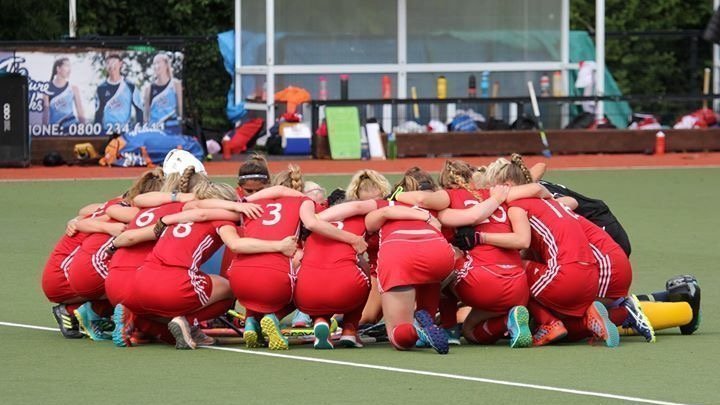Whatever the situation there will be matches that are hailed as ‘crunch’ games and can lead to feelings of nervousness and anxiety at both team and individual level
Athletes often suffer from anxiety. Anxiety can be acute (short-term) or chronic (long-term). It can be related to pre-match nerves or develop over time due to low self-confidence. Anxiety is a natural reaction to threats in the environment and part of the preparation for the ‘fight or flight’ response. This is our body’s automatic response that prepares it to ‘fight’ or ‘flee’ from perceived harm or attack.
Sporting competition promotes similar psychological and bodily responses because there is often a threat posed towards the ego – your sense of self-esteem. Essentially, when the demands of training or competition exceed your own perceived ability, anxiety is the inevitable outcome. This happens when the event is perceived as important.
Types of anxiety
Anxiety can be recognised on three levels (Karageorgis 2007):
- Somatic anxiety is based on physical feelings we get from being nervous such as butterflies in the stomach, shaking, sweating or feeling nauseous (to name a few)
- Cognitive anxiety is psychological, and affects thought processes, causing, for example, indecision, negative thoughts, lack of concentration or loss of confidence.
- Behavioural anxiety exhibits in patterns of behaviour, e.g. introversion, biting finger nails, fidgeting or lethargy.
We all experience anxiety in a different way and this does not always have to have the negative performance effects generally associated with nerves.
Based on the three types of anxiety, identify what your own symptoms are. You may experience a mixture of all three or any combination of them when you feel nervous. Write your answers on the diagram below.
Then ask yourself what personal performances on pitch do YOU associate with your nerves – good, bad or ugly?
Causes of Anxiety
According to Kremer and Moran (2008) one reason why we tend to get uptight before competition could be related the pressure of being observed. Spectators of any sport are constantly evaluating the skills of the athletes they are watching and this can be extremely daunting to those who are not trained to deal effectively with this pressure. Not wanting to fail can place more strain on a player when they become more aware of being observed, and so the stress continues to grow.
Feelings of anxiety can also be confused with fear but there is a significant difference between these two emotions.
- A fear or “phobia” is a negative feeling about a specific object (spiders/the hockey ball) or experience (talking in front of a large group)
- Anxiety is more general and often players recognise that they are anxious about something but cannot put their finger on it. It is more situational based.
Perception is everything!
The way in which a player chooses to respond to a situation will determine whether they choose to see it as a performance inhibitor or a performance enhancer. Anxiety is no different, but much of this ‘choice’ that I talk of does not often feel like it is under our control. With anxiety, our past experiences as a hockey player play a big part in how we view it.
Remember those school or county hockey trials as a child? What happened back then will influence your perception of how nerves and anxiety affect your performance as an adult. If you experienced poor performance or had a bad game when it mattered most, you have an increased likelihood of perceiving nerves as a negative that will stop you playing well now.
 Anxiety in this sense can be explained using the analogy of stress and the glass of water……..if I were to ask you how heavy this glass of water is you might answer 8oz or 12oz maybe.
Anxiety in this sense can be explained using the analogy of stress and the glass of water……..if I were to ask you how heavy this glass of water is you might answer 8oz or 12oz maybe.
Absolute weight doesn’t matter really. It depends on how long you hold it. If you hold it for a minute, it’s not a problem. If you hold it for an hour, you’ll have an ache in your arm. If you hold it for a day, your arm will feel numb, it may feel paralysed or it might fall off (although I doubt it!). In each case, the weight of the water doesn’t change, but the longer it’s held, the heavier it feels.
Stress and anxiety are like the glass of water. Think about them for a short time and everything is fine. Hold onto them for a longer period of time (since that childhood county trials experience for example) and they begin to feel uncomfortable. And if you think about them all the time, you will feel paralysed – incapable of doing anything or moving forward.
What you could do is choose to put the glass down, leave it on the side and go and play hockey, remembering the reason you started to play in the first place (usually enjoyment)!
Dealing with anxiety and nerves
The major problem in competition is letting your mind work against you rather than for you. You must accept anxiety symptoms as part and parcel of the competition experience; only then will anxiety begin to help, not hinder, your performance.
Remember that anxiety can be your ally and will invariably bring out the best in you, if you let it.
This article is taken from our print archives
Help keep independent journalism alive in these uncertain times. Ahead of the new season, please subscribe in print or in digital format.




